With Israeli checkpoints sealed since early March and food supplies depleted, Rehab Akhras says her family may soon starve six weeks into a total blockade that has emptied Gaza’s markets, shuttered bakeries, and halted emergency meal distributions for its 2.3 million residents.
On a spot of packed ground in a camp of plastic sheets where she lives with her displaced family in Khan Younis, Akhras, 64, used cardboard to light a fire and boil a can of beans. It is all they have left.
“We’re a family of 13 people, what will one can of fava beans do for us?” she said.
“We have survived the war and we survived the airstrikes as we wake up and go to sleep. But we can’t survive the hunger, neither us nor our children.”
To the north in Nuseirat, hundreds of Palestinians queued up for hot cooked rice at an outdoor emergency kitchen. Small children jammed the front of the queue, waving buckets to bring something home for their families.
Aid agencies that have been supplying those emergency meals say they will have to stop within days unless they can bring in more food.
The World Food Programme used to provide bread at 25 bakeries across the Gaza Strip. All of those bakeries are now shut. It will soon have to halt distribution of food parcels at reduced rations.
‘Very, very deep hunger’
“All basic supplies are running out,” said Juliette Touma from UNRWA, the U.N. agency for Palestinian aid. “The prices of commodities have exponentially increased over the past one month, since the Israeli authorities put the siege on the Gaza Strip.
“It means babies, children are going to bed hungry. Every day without these basic supplies, Gaza inches closer toward very, very deep hunger.”
Every Gazan can now quote the fantastical prices for the little food remaining in markets: a 25-kilogram sack of flour that used to sell for $6 now costs 10 times as much. A liter of cooking oil, if you can find it, costs $10 instead of $1.50. The lucky few might stumble on a tin of sardines if they can afford $5.
“Food distributions have almost stopped altogether, with remaining stocks now diverted to keep hot meal distributions going for a few more days, but that will soon finish too,” said Gavin Kelleher, an access manager for the Norwegian Refugee Council in Deir al-Balah.
Medical charity Medicins sans Frontiers says it is encountering children and pregnant women with severe malnutrition. Lactating mothers are themselves too hungry to be able to breastfeed.
Israel denies that Gaza is facing a hunger crisis. The military accuses the resistance group Hamas, who have run Gaza, of exploiting aid, and says it must keep all supplies out to prevent members from getting them.
“The IDF (Israeli Defence Forces) is acting in accordance with the directives of the political echelon. Israel is not transferring and will not transfer aid to the hands of … organizations,” the military claims.
The Foreign Ministry said 25,000 aid trucks had entered Gaza in the 42 days of the cease-fire – before it shut the border at the start of March – and that Hamas had used the aid to rebuild its war capabilities.
Hamas denies exploiting aid and accuses Israel of using starvation as a military tactic.
In Nuseirat, Neama Farjalla goes out every day at 6 a.m., trekking with her children across the war zone from soup kitchen to soup kitchen in the hope of a bowl of rice.
“If we don’t die of airstrikes, we will die of hunger,” she said.
“When my young son tells me, ‘Mama, I want a glass of milk’, my heart breaks.”

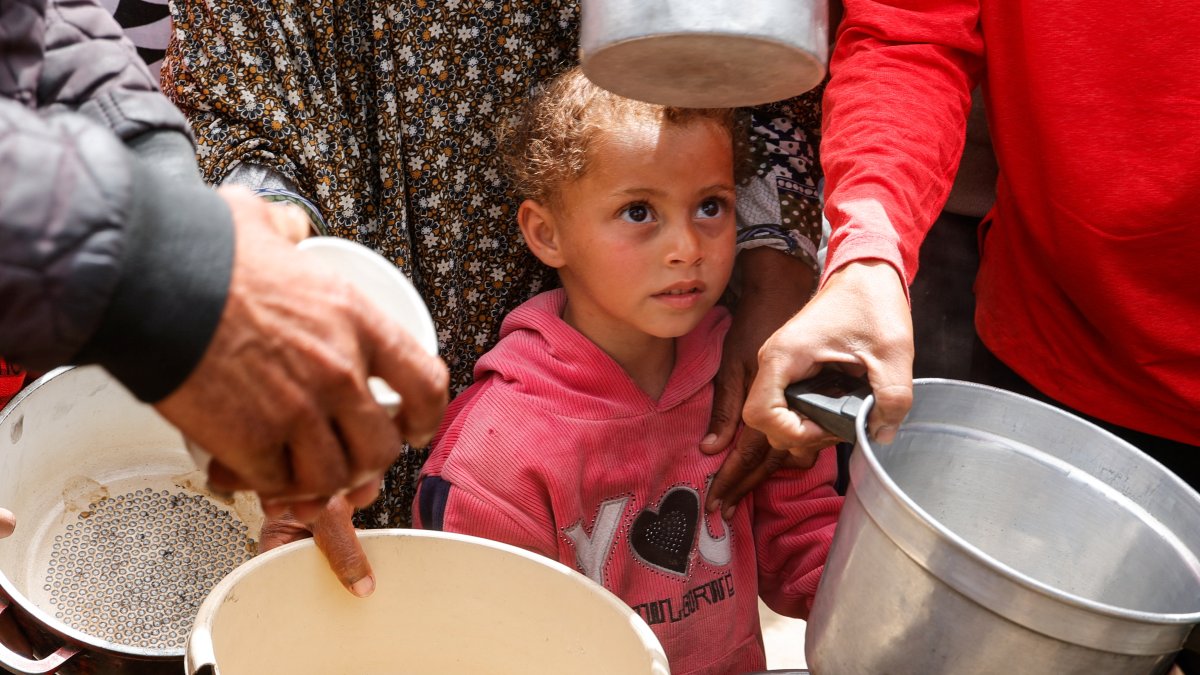




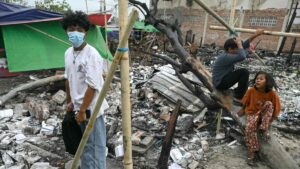











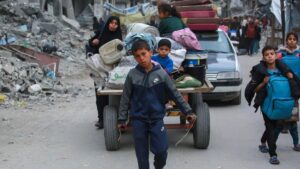

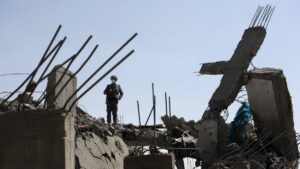



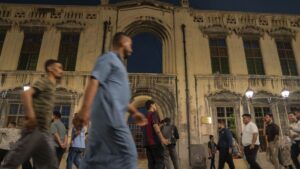



























Be First to Comment